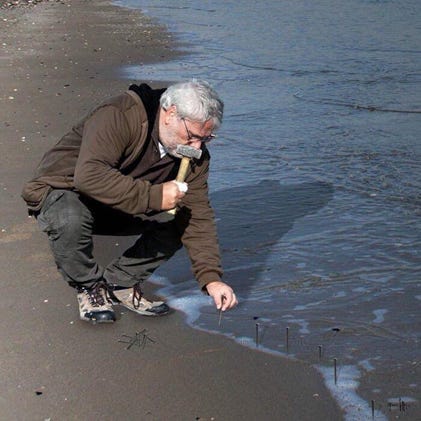The Systematic Valley (2021)
You must walk in this lonely valley
"There is a road that leads to glory Through a distant valley, No one else can walk it for you, They can only point the way."
In this Twitter thread, I described a model of development: you must learn to play social roles, then unlearn those roles to become fully yourself. If you attempt to short-circuit this process by not fulfilling these roles in the first place, you will end up stunted and maladjusted.
This model is everywhere. To give an apocryphal example: Bruce Lee found that he had to teach his students to unlearn their previous martial arts training. But that did not mean that untrained students were better than martial artists to learn from him.
This is the systematic valley. This is the period of development that everyone must go through on the way to mastery. This is the period of trying and failing to reduce a given expertise to a clearly articulated, formal and technical system. You must fully and deeply learn any system in order to transcend it.
C. S. Lewis wrote about the importance of prayer and good works in the context of salvation by grace alone: you must do all you can to appreciate the futility of your efforts. There are various Buddhist schools of thought that teach "you are already enlightened". So what is the purpose of all this meditation? In order to appreciate how useless it was - because you were already enlightened.
Language is a liar
Going through this valley is what makes the difference between the terrifying clichés of the lazy and unambitious and the profound wisdom of a master – even if, on the surface, they express the same sentiments. They are not the same - one has walked through the valley, applying all his intellect, his power and all the heritage of technique and tradition to a problem, and the other finds excuses not to even try. .
Perhaps you've heard neo-Advaitic platitudes or glib assertions about the goodness of life and the transience of evil: "It's all one, man." "It's okay, man." Imagine an ordinary person saying this to you while you were suffering extreme grief and hardship, and now imagine a saint saying the same thing in the face of torture and death. The truth is not just in the words, but in the whole position and experience of the person who speaks them.[1]

"There is a road that leads to glory Through a distant valley, No one else can walk it for you, They can only point the way."
In this Twitter thread, I described a model of development: you must learn to play social roles, then unlearn those roles to become fully yourself. If you attempt to short-circuit this process by not fulfilling these roles in the first place, you will end up stunted and maladjusted.
This model is everywhere. To give an apocryphal example: Bruce Lee found that he had to teach his students to unlearn their previous martial arts training. But that did not mean that untrained students were better than martial artists to learn from him.
This is the systematic valley. This is the period of development that everyone must go through on the way to mastery. This is the period of trying and failing to reduce a given expertise to a clearly articulated, formal and technical system. You must fully and deeply learn any system in order to transcend it.
C. S. Lewis wrote about the importance of prayer and good works in the context of salvation by grace alone: you must do all you can to appreciate the futility of your efforts. There are various Buddhist schools of thought that teach "you are already enlightened". So what is the purpose of all this meditation? In order to appreciate how useless it was - because you were already enlightened.
Language is a liar
Going through this valley is what makes the difference between the terrifying clichés of the lazy and unambitious and the profound wisdom of a master – even if, on the surface, they express the same sentiments. They are not the same - one has walked through the valley, applying all his intellect, his power and all the heritage of technique and tradition to a problem, and the other finds excuses not to even try. .
Perhaps you've heard neo-Advaitic platitudes or glib assertions about the goodness of life and the transience of evil: "It's all one, man." "It's okay, man." Imagine an ordinary person saying this to you while you were suffering extreme grief and hardship, and now imagine a saint saying the same thing in the face of torture and death. The truth is not just in the words, but in the whole position and experience of the person who speaks them.[1]
What's Your Reaction?














![Three of ID's top PR executives quit ad firm Powerhouse [EXCLUSIVE]](https://variety.com/wp-content/uploads/2023/02/ID-PR-Logo.jpg?#)







